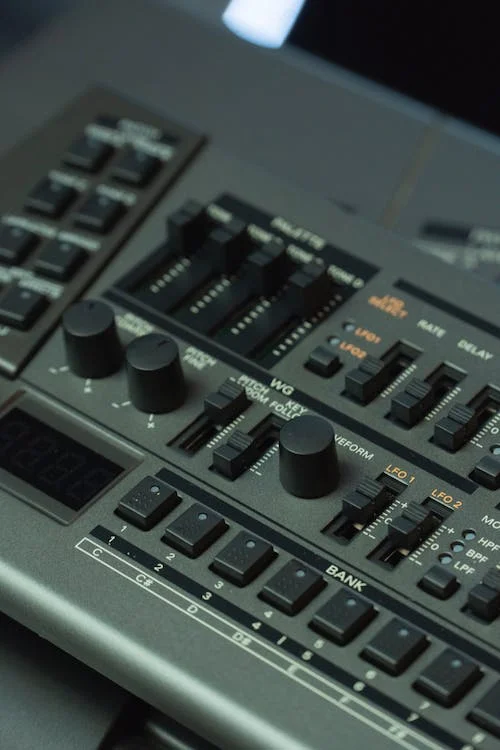After mixing, the track is sent to song mastering.
The main goal of mastering is the final processing of the finished composition and its preparation for replication on physical and digital media. At this stage, a master copy of the track is created.
Before the digital era, tracks were mastered to the sound standards of vinyl records and audio cassettes. Today, mastering is done taking into account the requirements of Internet sites. For example, for correct work in iTunes, tracks are mastered with some nuances.
During the mastering stage, the sound engineer adds the finishing touches to the musical canvas. This can be plug-in processing for emulating analog sound, raising or lowering the volume.
In the general case, mastering is the creation of a “draft” product, from the elements of which an instance subsequently emerges, serving as a reference or master copy. At the moment, specialists are mastering sound recordings and mastering video recordings. Simply put, musicians and singers record a “rough version” of a track, a musical composition in the genre of Pop, Rap, Rock, Metal and others, after which the recording is transferred to a specialized studio that performs professional metering, the result of which is the desired volume and density of the track sound. as well as a bright reference western sound.
Is mastering necessary?
By and large, all musical compositions that we listen to and download from music sites, as well as musical compositions broadcast by FM radio stations, have been completely mastered in professional recording studios. In other words, with the help of mastering music, errors and inconsistencies in the recording are corrected. Among the errors and inconsistencies of the “draft” recording that cannot be corrected with the help of mastering:
- balance of instruments (if it is not stem-mastering);
- mixing recompression;
- mix reverb;
- falsity of performance in vocals.
Why should I master my songs?
If your sound engineer is one of those rare unique people who can mix and master at the same time, then you can achieve good results by directly transferring from the mixed tape, but there are at least three reasons why professionals send their recordings to a mastering studio.
- Usually mastering music contributes to a significant improvement in the quality of the mixed soundtrack. The market is demanding. If you want your disc to be up to date, it must sound absolutely flawless. Let’s say that different songs were recorded at different times over the course of a week or longer, this leads to differences in sound level and overall sound character. Mastering allows you to create a single whole from separate pieces of music.
- The Mastering Engineer has extensive experience in listening to various styles of music and has a fresh take on music. As a professional from the outside, a new set of listening skills tuned to assess the overall experience rather than the details of the compositions can be very appropriate.
- The mastering studio is equipped with exceptional quality processors that are specially designed for processing stereo signals. It’s one thing to run only the guitar through the limiter and equalizer, and quite another to run all the instruments through them.
How much does a professional mastering cost?
Professional recording studio specialists can order professional mastering of musical compositions, including online song mastering.
The cost of mastering is not constant and is determined by many factors:
- style of music;
- the degree of urgency;
- the amount of work;
- level of quality, etc.
As a rule, the imaginary price is set for mastering rap music, the maximum for pop compositions. The cost of a minimum project usually includes the processing of several (up to seven) tracks. In professional studios, special programs are often used that allow the customer to independently calculate the cost of the mastering service.
Will my song sound better if I master it?
The advantages and benefits of working with mastering professionals are as follows:
- the use of exclusively high-quality paid plug-ins UAD and Slate digital, resulting in a dense western sound;
- the use of modern analog equipment due to which the mix sounds standard in its genre of music;
- mixing and mastering of a track by the same team of specialists.
The goal of a mastering engineer is to understand and follow the directions of the producer or client and then add or remove what is needed, nothing more. Changes are often subtle, but they will noticeably improve the quality of the song.

